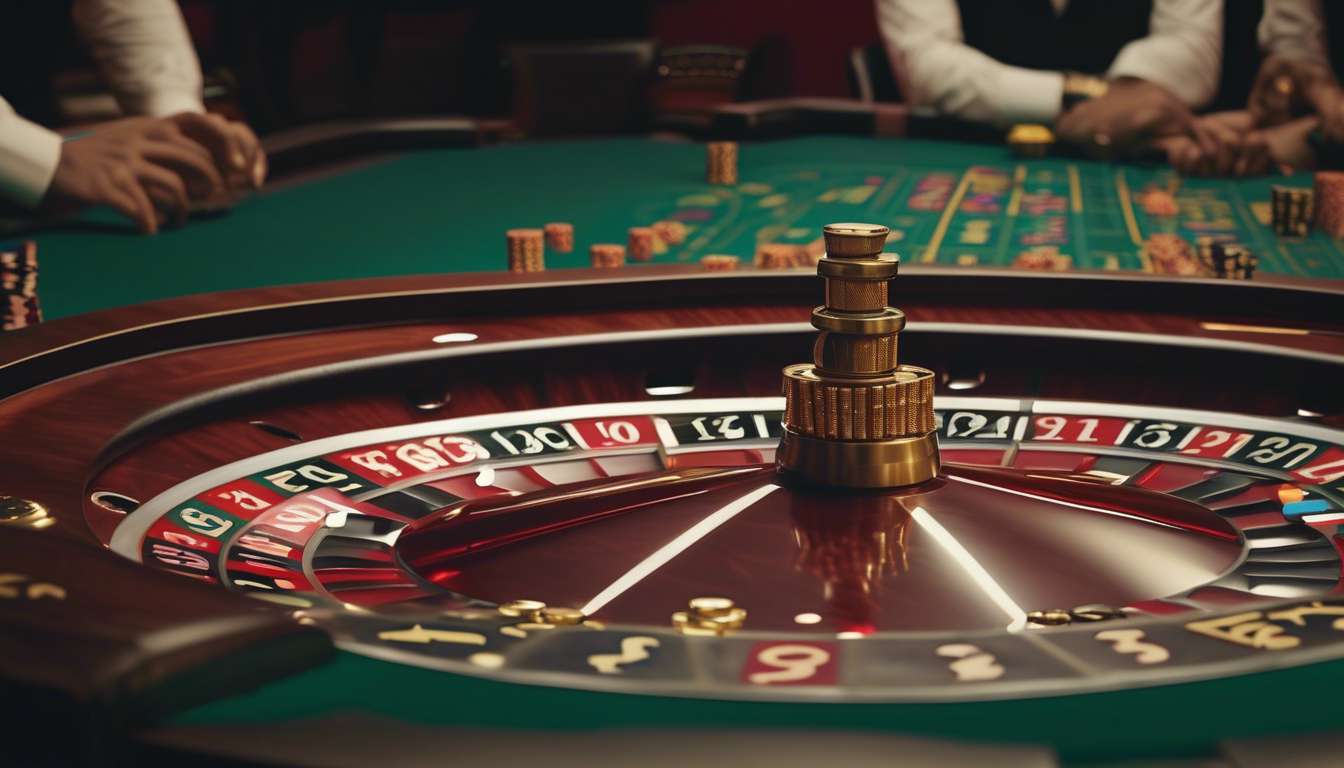As avid gamblers and enthusiasts of strategic play, we are often drawn to systems that promise to tip the odds in our favor. One such method is the Martingale System, which has sparked both intrigue and debate among us.
Origin and Premise
Originating from the casinos of 18th-century France, the Martingale System is based on a deceptively simple premise:
- Double your bets after every loss.
- Aim to recover all previous losses.
- Gain a profit equal to your original stake.
Potential Benefits
The straightforward approach of the Martingale System can be enticing:
- It offers a clear strategy for potentially recovering losses.
- The system promises a profit equal to the initial bet if successful.
Inherent Risks
However, we understand that the Martingale System also carries significant risks:
- It requires a substantial bankroll to withstand consecutive losses.
- There’s a potential to hit table limits, preventing further doubling of bets.
- It doesn’t alter the odds of the game, which remain in favor of the house.
Conclusion
In this article, we delve into the mechanics of the Martingale System, weigh its potential benefits against its pitfalls, and explore whether it truly serves as a reliable strategy for gamblers like us. Our goal is to navigate the unpredictable world of betting with a well-informed perspective.
History of the Martingale System
The Martingale System, originating in 18th-century France, was initially popularized as a betting strategy for gamblers seeking to recover losses. Imagine sitting in the bustling French salons where this system was more than just a technique; it was a shared experience that bonded gamblers in a quest to outsmart fortune.
This approach provided a sense of community, as players collectively sought to beat the odds. As part of this vibrant gambling culture, the Martingale System quickly gained traction among those who craved a sense of belonging through shared risk and reward.
It was simple yet captivating, promising a way to regain what was lost. The system’s appeal lay not only in its potential for financial recovery but also in the camaraderie it fostered among players.
We embraced the Martingale System as a symbol of hope, a way to unite in the common goal of outwitting chance and, perhaps, finding a place within the gambling fraternity.
Core Principle and Mechanics
At its core, the Martingale System relies on a straightforward tactic: doubling our bet after each loss to eventually recover all previous losses with a single win. This concept, familiar to many in our community, gives us a sense of control and a shared strategy when facing the uncertainties of gambling. We feel connected, knowing that others are also navigating the ups and downs of this method.
The mechanics of the Martingale System are simple yet intriguing:
- We begin by placing an initial bet.
- If we win, we enjoy our profit and continue with the same wager.
- If we lose, we double our bet on the next round.
- This doubling continues until we win, at which point we recoup our losses and gain a profit equal to the initial bet.
It’s a cycle that creates both excitement and camaraderie among us as we pursue the elusive win. The system’s predictability can be reassuring, fostering a sense of unity in our shared pursuit.
Advantages of the Strategy
One of the biggest advantages of our strategy is its simplicity, making it accessible to both seasoned gamblers and newcomers alike. The martingale system doesn’t require complex calculations or extensive knowledge of probability theories. As a community, we can appreciate a strategy that allows us to focus more on the thrill of the game rather than getting bogged down in intricate details.
The Martingale System Approach:
- Doubling our bet after every loss.
With the martingale system, we’re all on the same page, using this straightforward approach. This shared understanding fosters a sense of unity and camaraderie among us gamblers, as we’re all employing the same tactical method.
Moreover, this strategy offers us a sense of control. Knowing exactly what our next move should be provides a comforting structure, especially in the unpredictable world of gambling.
We’re relying on a consistent plan, which can be empowering and reassuring. Our collective experience with the martingale system strengthens our connection and enhances our confidence as a group.
Potential for Quick Recovery
One of the key benefits we experience with this strategy is its ability to quickly recover losses. The martingale system empowers us to feel a sense of control and optimism, even when luck seems to waver.
- By doubling our bet after each loss, we position ourselves to regain what we’ve lost and potentially come out ahead.
This shared experience of bouncing back can foster camaraderie among fellow gamblers, as we rally together around the table, united in this strategic pursuit.
In a world where we often seek ways to belong and connect, the martingale system offers us a shared language and approach.
- We’re drawn to the thrill of the chase, and the quick recovery potential speaks to our desire for resilience.
- It’s not just about the numbers; it’s about the shared journey and the stories we create together.
When we succeed in recouping our losses swiftly, it’s a victory that resonates across the community.
Risks of the Martingale System
While the allure of rapid recovery is enticing, we must acknowledge the significant risks involved in using the martingale strategy.
As a community of gamblers, we often seek systems that promise success and camaraderie, but the martingale system can challenge our sense of security. With its core premise of doubling bets after each loss, we’re exposed to potentially devastating financial impacts. The thrill of recovering losses quickly can overshadow the harsh reality of hitting a losing streak, which can lead to exponential losses.
Moreover, table limits set by casinos can quickly thwart our strategy:
- We might reach a cap before recovering our losses.
- This limitation leaves us unable to double our bets further, rendering the martingale system ineffective.
In addition, we risk falling into the trap of chasing losses, which can foster a cycle of desperation and financial strain.
Let’s remain vigilant and share our experiences, ensuring this strategy doesn’t isolate us from the supportive community we cherish.
Bankroll Management Considerations
Effective bankroll management is crucial to mitigating risks when employing any gambling strategy, especially one as aggressive as the Martingale system. As gamblers united by a love for the thrill, we know that managing our funds wisely can be the difference between a brief stint at the table and a long, enjoyable experience. With the Martingale system, our bankroll becomes our shield against spiraling losses that can quickly escalate due to its progressive betting nature.
Key Steps for Managing Your Bankroll:
-
Set Clear Limits
- Determine how much you are willing to spend before starting to play.
- Stick to these limits religiously to avoid unexpected losses.
-
Calculate Maximum Potential Loss
- Before playing, calculate the maximum loss you can endure.
- This helps ensure you’re not caught off guard by unforeseen streaks of bad luck.
-
Divide Your Bankroll
- Break down your bankroll into smaller, manageable portions.
- This allows you to withstand several rounds of doubling bets without depleting your funds too quickly.
By following these steps, we can enjoy the game responsibly and sustainably. Together, we can make our casino experience both thrilling and enduring.
Table Limitations and Constraints
Every casino imposes table limits that can impact our ability to execute the Martingale strategy effectively. These limits are in place to protect the casino’s interests, but they can also restrict us as we attempt to double our bets after each loss. If we hit the table’s maximum bet before recovering our losses, the Martingale system’s core principle collapses, leaving us without a safety net.
Understanding these constraints is crucial for any gambler using this strategy. Before sitting down at a table, we should check the minimum and maximum bet limits. It’s essential to align our starting bet with these limits to ensure we have enough room to double as needed.
By being aware of these constraints, we can better strategize our play and foster a sense of camaraderie among fellow gamblers who share our approach. Together, we navigate these limitations, enhancing our collective casino experience and increasing our chances of success with the Martingale system.
House Edge and Game Odds
Understanding the house edge and game odds is vital for evaluating the effectiveness of the Martingale system in different casino games. As a community of gamblers, we seek strategies that enhance our chances of winning, while also feeling connected over shared experiences.
The house edge represents the casino’s advantage over us, ensuring their long-term profitability. Each game carries its own odds, which influence how frequently we might win or lose.
Applying the Martingale system involves betting on the hope of short-term wins by doubling our bets after losses. However, the house edge remains a constant barrier, slowly eroding our bankroll.
For instance, in games like roulette, where the odds are almost 50/50, the Martingale system may seem appealing. Yet, the ever-present house edge means that, over time, the casino’s advantage prevails.
Key points to consider when using the Martingale system:
-
Understand the game odds:
- Know the probability of winning and losing for each game.
-
Acknowledge the house edge:
- Recognize that it is a consistent factor that benefits the casino in the long run.
-
Be aware of bankroll limitations:
- Doubling bets after losses can quickly deplete funds, especially during losing streaks.
As we navigate these odds, we must remember that no system, including the Martingale, can overcome the house edge entirely.
How does the Martingale System compare to other popular gambling strategies, such as the Paroli or Fibonacci systems?
When comparing the Martingale System with other popular gambling strategies like Paroli or Fibonacci, each approach has its unique features.
Martingale System:
- Focuses on doubling bets after a loss.
- Aims to eventually win back losses.
Paroli System:
- Involves increasing bets after a win.
- Designed to capitalize on winning streaks.
Fibonacci System:
- Follows a specific mathematical sequence to determine bet sizes.
Each strategy offers a different approach to risk and reward, catering to varying gambler preferences and risk tolerances.
Can the Martingale System be effectively used in online gambling environments, and are there any unique considerations for digital platforms?
When gambling online, the Martingale System can present both opportunities and challenges.
Key Considerations:
- The fast-paced nature of digital platforms can significantly impact your bankroll.
- Staying disciplined and setting clear limits is crucial for success.
Adapting Strategy:
- Tailor your approach to accommodate the unique features of online gambling:
- Instant transactions
- Diverse game options
By staying vigilant and informed, you can effectively navigate the digital landscape.
How does the psychology of gambling impact the effectiveness of the Martingale System for individual players?
When it comes to gambling, our mindset plays a crucial role in how we approach strategies like the Martingale System. The psychology of gambling can greatly influence how effective this system is for us as individual players.
Several psychological factors impact our experience and outcomes with the Martingale strategy:
-
Emotions: Our emotional state can affect our decision-making, potentially leading to impulsive bets or abandoning a strategy prematurely.
-
Risk Tolerance: Understanding our own risk tolerance helps us determine whether the Martingale system, which involves increasing bets after losses, is suitable for us.
-
Decision-Making Processes: How we make decisions under pressure can influence the success of employing the Martingale strategy.
Understanding these psychological aspects can help us navigate the complexities of using such systems in our gameplay. By being aware of our own psychological tendencies, we can make more informed decisions and potentially improve our gambling experience.
Conclusion
In conclusion, the Martingale system offers gamblers the potential for quick recovery but comes with significant risks.
Effective bankroll management is crucial to mitigate losses, considering:
- Table limitations
- The house edge
Ultimately, the decision to use the Martingale system should be carefully weighed against its advantages and disadvantages in the context of:
- Individual risk tolerance
- Game dynamics




